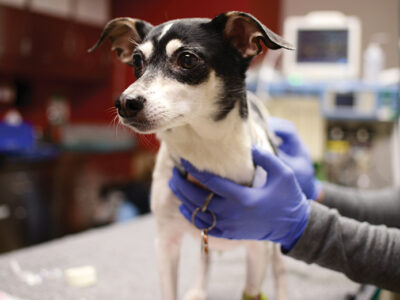A study by researchers at Penn’s Medical Center indicates that the widespread practice of self-prescribing medication by physicians begins early in their careers. According to the survey, 52 percent of those in residency-training reported prescribing medications for themselves. Forty-two percent of that medication was obtained from a hospital’s “sample closet,” while another 11 percent came directly from pharmaceutical-company representatives. The study, which appeared in the October 14 Journal of the American Medical Association, surveyed 316 resident physicians in four internal-medicine programs (one was Penn’s) in the United States.
“A physician who treats himself has a fool for a patient,” said Dr. Jason D. Christie, a pulmonary fellow at Penn and co-author of the study.
“We know from previous studies that self-prescription is common among practicing physicians,” said co-author Dr. David Asch, GM’87, WG’89, associate professor of general internal medicine, executive director of Penn’s Leonard David Institute of Health Economics. “Now we know the practice starts early. We either need to decide that self-prescription isn’t so bad, or we need to put self-prescription on the professional agenda. This is particularly true for resident physicians.”
Wednesday, July 9, 2025
Popular
Administration
Anniversary
Archaeology
Architecture
Art
Awards
Books
Calendar
Campus Life
Commencement
Education
Elsewhere
entrepreneurs
Events
Exhibition
Expert Opinion
Faculty
Film
Football
Gifts
Health
Healthcare
Heard on Campus
History
International
Leadership
Medicine
Men's Basketball
Music
notes
obits
painting
Penn Medicine
Penn Museum
Philadelphia
Photography
Poetry
Politics
Science
Student Life
Technology
Television
Theater
Wharton
Window




